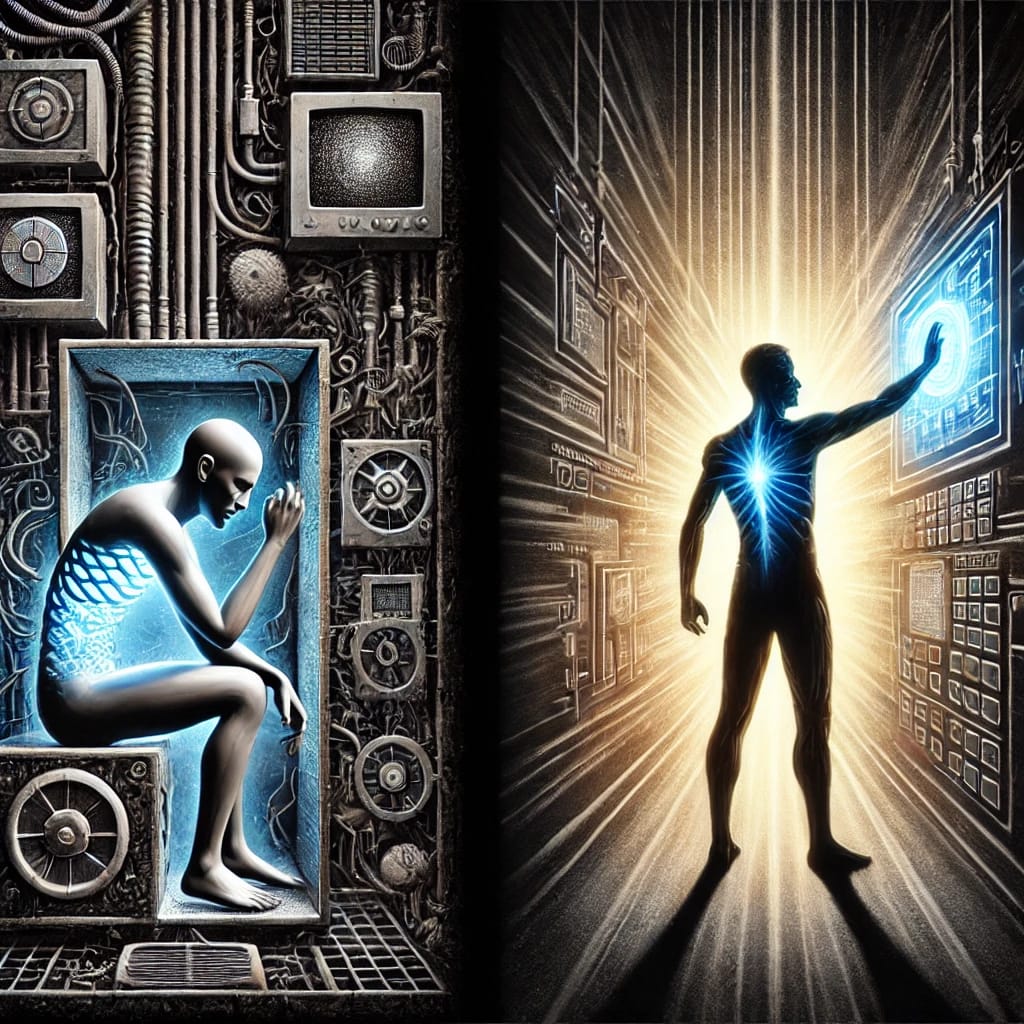
Iqra Nabi
We live in an era where technology surrounds us in every aspect of life. From the moment we wake up to the time we sleep, we are constantly interacting with machines—our smartphones, computers, home appliances, and even cars equipped with artificial intelligence. This has led many to believe that we have become slaves to machines. A colleague of mine recently said, “We have become too dependent on machines; they control our lives.” But I disagreed and responded, “Machines are our tools, our servants, not our masters. We take advantage of them to improve our lives rather than being enslaved by them.”
The Role of Machines in Our Lives
There is no doubt that technology has reshaped the way we work, communicate, and even think. Tasks that once took hours or days can now be completed within seconds. From automation in industries to artificial intelligence in customer service, machines have increased efficiency and productivity beyond imagination. However, the concern arises when people feel that they have lost control and that machines dictate their routines.
But is this truly the case? Have we really lost our freedom to technology, or have we simply adapted to a world that is evolving rapidly? The truth is, we are not forced to use technology; we choose to use it because it makes our lives easier.
Can We Live Without Technology?
Some argue that excessive reliance on machines has made us lazy and less self-reliant. But let’s ask ourselves: can we completely avoid technology in today’s world? The answer is no. We cannot go back in time or escape technological advancements because we are bound by our necessities. The world we live in today is far more complex and demanding than before. In such a fast-paced environment, using technology is not just a convenience; it’s a requirement for survival and progress.
Instead of fearing that machines control us, we should acknowledge that we are the ones who created them, programmed them, and set their limitations. They do not have independent thoughts or desires; they function based on how we design them. The real issue is not the presence of technology in our lives, but rather how we choose to interact with it.
A Smarter Approach to Technology
Rather than cursing machines for changing the way we live, we should focus on using them wisely. Technology is a tool, and like any tool, its impact depends on how we use it. If we allow it to dominate our lives to the point where we cannot function without it, then yes, we risk becoming its slaves. But if we harness its power effectively—using it to enhance our skills, improve productivity, and solve real-world problems—then we remain in control.
The key is balance
We must ensure that while machines work for us, we do not let them take away our ability to think critically, solve problems creatively, and engage in meaningful human interactions. We should use technology as a stepping stone for progress rather than a crutch for dependency.
Final Thoughts
Technology is not our enemy; our approach to it determines whether it controls us or empowers us. We must recognize that resisting change is futile, but embracing it intelligently can lead to limitless possibilities. Instead of fearing machines, we should master them, ensuring that they remain tools that serve us rather than forces that rule over us.
So, the next time someone says, “We are slaves to machines,” remind them that we hold the power to decide how we use technology. It is not about escaping the digital age but about navigating it wisely.
(The Author is news anchor at Voice Tv Urdu)






